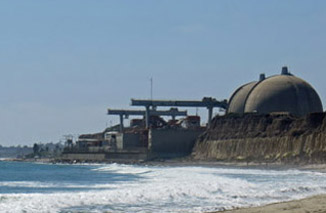Tag Archives: 2015 Legislation
Police Agencies Tap Secret Cellphone System
by Teri Sforza and Lily Leung, The Orange County Register

The devices mimic wireless telecommunications towers and can trick cellphones into connecting to them rather than the towers. Police then can collect data from the phones, including phone numbers and GPS points. Their use has grown increasingly controversial, particularly as it has spread from federal to local agencies. … “My concern is whether there are sufficient safeguards to ensure the protection of privacy with regard to this technology,” said Erwin Chemerinsky, a constitutional law scholar and dean of UC Irvine’s School of Law. “Public knowledge of this technology is an essential first step.” Read More ›
Google Is Tracking Students As It Sells More Products To Schools, Privacy Advocates Warn
by Andrea Peterson, Washington Post
In 2014, 28 student data privacy laws were signed into law across 20 states. … One of the toughest was a California law that bars school vendors from selling student data, using it to target advertisements, or building a profile about them for non-educational purposes. … The Roseville City School District in California [where one concerned parent has struggled to keep his 4th grade daughter out of Google’s data] said the school system is evaluating how the state law will impact their district and its vendors. Read More ›
Consumer Laws Taking Effect In 2016

The following consumer-related legislation was signed into law in 2015 and will take effect January 1, 2016, except as noted. Read More ›
Mercury News editorial: Governor’s PUC Emails Should Be Public
by The Editorial Board, San Jose Mercury News

Brown stood by former PUC President Michael Peevey long after Peevey’s grossly inappropriate relationship with PG&E became clear. Under Peevey’s watch, the PUC let PG&E take money that was approved for pipeline safety and use it instead for executive compensation before the deadly 2010 San Bruno explosion. The governor also knew Peevey inappropriately engaged in secret talks with Southern California Edison, the majority owner of the San Onofre power plant in San Diego County. But the real surprise was this fall, when he vetoed the six-bill PUC transparency package that was passed unanimously by the Assembly and Senate. Read More ›
Consumer Federation Of California Releases 2015 Scorecard For State Lawmakers
The Consumer Federation of California (CFC) has released its 2015 Scorecard for State Legislators, which rates lawmakers on the votes they cast on key issues, including privacy, automobile safety, household toxics, truth in advertising, living wages, reform of the California Public Utilities Commission, and other consumer protection … Read More ›
2015 In Review: Recap Of State Consumer Legislation

In the 2015 legislative session, Consumer Federation of California (CFC) advocated for a range of consumer and privacy rights, including restrictions on unfair lending practices, protections against elder abuse, workers’ rights and the minimum wage, and reform of the California Public Utilities Commission. CFC also helped to … Read More ›
From Warsaw To SF, The Roots Of Edison’s Historic Fine
by Chuck McFadden, Capitol Weekly

[The CPUC] levied the unprecedented fine as punishment for failing to disclose a series of meetings and emails, and for providing misleading testimony pertaining to the costs of shutting down the San Onofre Nuclear Generating Station. Southern California Edison owns 70 percent of the station. … Left hanging was the question of whether the commission would revisit a previously approved settlement deal that has ratepayers coughing up to 70 percent of the $4.7 billion cost of shutting down San Onofre. … The $16.7 million fine is the largest ever imposed on a utility for these specific violations. Read More ›
Judge: Regulator Should Release Brown E-Mails On Nuclear Shutdown
by Jaxon Van Derbeken, San Francisco Chronicle

The 65 e-mails that [Gov. Jerry Brown and CPUC officials] either sent or received date from 2013 and 2014. “It appears from the record that CPUC and officials from the governor’s office, including the governor himself, were involved in the discussions at the CPUC regarding the San Onofre” [nuclear plant shutdown, attorney Maria Severson told San Francisco Superior Court Judge Ernest Goldsmith]. “The interest of public disclosure as to who and what was behind the decision to make utility customers pay over $3.3 billion for the errors of Edison is of vital importance.” Read More ›
CPUC Reform Veto Vexes Brown Backers
by Jeff McDonald, San Diego Union-Tribune

Richard Holober, executive director of the Consumer Federation of California, has praised Brown in the past for action on privacy, food safety, credit reports and residential care facilities for the elderly. Holober is not happy with the vetoes of CPUC bills. “Until we saw the vetoes, we were keeping our fingers crossed that he would make the Governor’s Office part of the solution,” Holober said. “Now we are really scratching our heads. The loss of public trust, the scandalous collusion is troubling.” Read More ›
Corinthian College Students Sort Through Confusion, Bureaucracy After Company’s Fall
by Katy Murphy, Contra Costa Times

The Department of Education created a special claim form for students who as far back as 2010 attended Heald programs it found to have inflated job-placement numbers – about 80 percent of all of the chain’s offerings. Roughly 6,100 such claims had been filed as of mid-October compared with only a handful in the past. … The department has estimated that roughly 40,000 former Heald students alone were defrauded because of their programs’ phony job placement rates and are eligible for the relief. Read More ›
Judge Consulted Edison On San Onofre Deal
by Jeff McDonald, San Diego Union-Tribune

The utilities commission is unique among state agencies in that it employs judges who serve as arbiters, even when people have a beef with the agency itself. Members of the public cannot take action in Superior Court to challenge a utilities commission decision, but must appear before a commission employee. … The commission tasked an outside attorney to review its record on such private dealings, and the firm in June reported that violations are common and tilt the process in favor of utility companies. Legislators passed a slate of reform bills, which were vetoed earlier this month by Gov. Jerry Brown, who said they contained conflicting provisions that made them unworkable. Read More ›
Rise Of The Business Democrat
by Laurel Rosenhall, CalMatters

Since 2013, the group’s political action committee has taken in more than $4 million, with nearly one-third of that coming from Chevron, PG&E and other oil and gas companies. Other major donors include Wal-Mart, a hospital association and a realtors group. … Overall, the moderate Democrat committee has spent $2.3 million on campaign efforts since 2013 – more than half of it focused on five legislative races in the Central Valley, Orange County and Los Angeles. Voters elected three of the five candidates on which the committee spent the most in the last election. Read More ›
San Diego U-T Editorial: Gov. Brown And The PUC: What, Me Worry?
by The Editorial Board, San Diego Union-Tribune

This is maddening. At any point over the past year, Brown could have given guidance to lawmakers on how to structure PUC fixes that he thought appropriate. Instead, apparently discerning a world in which it’s cool for regulators and utilities to have a buddy-buddy relationship, the governor ended up blocking all reforms. … Despite [scandalous] revelations, the PUC has shrugged off calls to reopen negotiations on San Onofre and has done little to cooperate with investigators… [and] pretends that $850 million in already-planned PG&E infrastructure improvements are a penalty. This is the corrupt, petty culture that Jerry Brown thinks is worth preserving. Read More ›